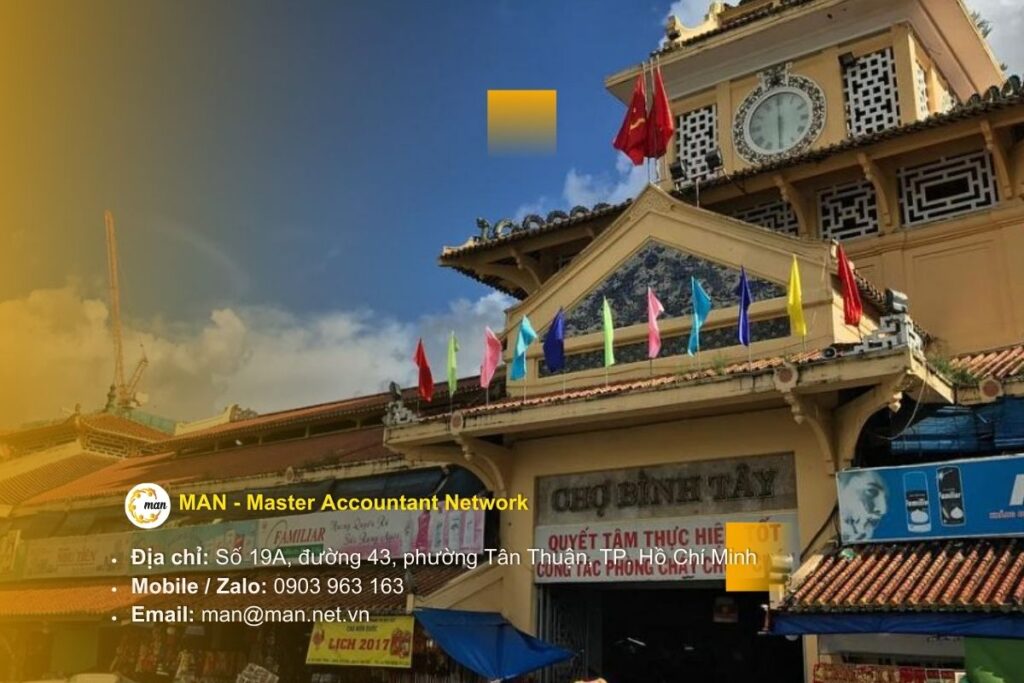Why is the management and accounting of interest expenses of FDI enterprises vital to business operations? In fact, interest expenses of FDI enterprises have emerged as a key issue in financial management and tax law compliance. Not only directly affecting the efficiency of capital use, interest expenses are also an important criterion in controlling related party transaction risks and financial reporting transparency. The management of interest expenses of FDI enterprises is directly regulated by Decree 132/2020/ND-CP and the latest update is Decree 20/2025/ND-CPThese documents clearly stipulate the principles of controlling interest expenses, the transition mechanism between tax periods as well as the obligation to declare related-party transactions.
Concept of interest expense of FDI enterprises
Interest expense of FDI enterprises is understood as the payment arising from borrowing capital (from banks, credit institutions or affiliates, parent companies) to serve the needs of operations and investment. This expense includes interest under the loan contract, fees related to the issuance of debt instruments, as well as financial expenses arising when FDI enterprises use loan leverage. According to the provisions of Decree 132/2020/ND-CP and Decree 20/2025/ND-CP, interest expense of FDI enterprises is one of the items that is strictly controlled because it has a direct impact on the basis of calculating corporate income tax in Vietnam.
The importance of interest costs for FDI enterprises
In the capital structure of FDI enterprises, interest expenses always account for a large proportion, especially in industries that require high initial investment capital such as industrial production, trade and services or real estate. Controlling and accounting for interest expenses of FDI enterprises is decisive for financial balance and long-term profitability.

- Interest expense of FDI enterprises directly affects after-tax profit. If this expense exceeds the prescribed control level, the excess will not be deducted when calculating corporate income tax. This can increase the tax burden, reduce capital efficiency and affect the global business strategy of FDI corporations.
- Managing interest expenses of FDI enterprises is closely linked to transparency in financial statements. Tax authorities often consider interest expenses as a potential sign of transfer pricing risks, when enterprises intentionally increase borrowing costs from parent companies or affiliates to reduce profits in Vietnam. Therefore, a transparent governance mechanism will help FDI enterprises build a reputable image, enhance trust with management agencies and partners.
- Optimizing interest expenses of FDI enterprises helps improve capital structure and competitiveness. In the context of fluctuating global interest rates, FDI enterprises need to proactively balance between loans and equity to ensure liquidity, maintain profit margins and expand operations sustainably.
Effective management of interest expenses of FDI enterprises not only helps enterprises comply with Vietnamese tax laws but also plays a strategic role in ensuring financial security, maintaining growth and consolidating position in the international market. This is the reason why interest expenses of FDI enterprises are always considered an important "highlight" in the comprehensive financial management of enterprises.
Distinguish interest expense from other types of financial expenses
In financial management, many FDI enterprises often confuse interest expenses with other types of financial expenses. However, it is necessary to clearly distinguish:
- Interest expense: Arising from the use of borrowed capital, including interest and fees related to borrowing capital. This is a tax-deductible expense but is subject to restrictions under the law.
- Other financial costs: Including exchange rate differences, payment discount costs, financial provision costs, or costs of issuing stocks and bonds. These amounts are not identical to interest costs and often have separate regulations on recognition, deduction and accounting.
Clear distinction helps FDI enterprises not only comply with international accounting standards (IFRS) and Vietnamese laws, but also limit the risk of unreasonable expenses being excluded by tax authorities.
The significance of correctly determining interest costs for FDI enterprises
Accurately determining the interest costs of FDI enterprises has many important implications:
- Compliance with tax laws: FDI enterprises are obliged to declare and correctly account for FDI enterprise interest expenses to ensure that the expenses are legally deductible, avoiding the risk of collection and penalties.
- Optimizing capital structure: Proper management of interest expenses helps businesses balance debt and equity, reduce capital costs and improve investment efficiency.
- Financial transparency: Accurately determining interest expenses is the basis for building transparent financial reports, increasing the trust of management agencies, shareholders and international partners.
- Limiting transfer pricing risks: In the context of complex related-party transactions, correctly recording interest expenses helps FDI enterprises avoid being suspected of abusing borrowing costs to transfer profits abroad.
Interest expense of FDI enterprises is not only a financial item, but also the "key" to ensuring the sustainability of business operations, legal compliance and global reputation of the enterprise.
Definition of deductible and non-deductible interest expenses in FDI enterprises
Interest expense is deductible.
According to Corporate Income Tax Law No. 14/2008/QH12 (amended and supplemented), Circular 96/2015/TT-BTC and especially Decree 132/2020/ND-CP, interest expense is only included in eligible expenses when:
- Loans directly serve the production and business activities of FDI enterprises.
- Have a credit contract, valid documents, proving the legal purpose of the loan.
- Total deductible interest expense shall not exceed 30% EBITDA (net operating profit plus interest expense and depreciation).
- The portion of interest expenses exceeding the ceiling can be carried forward to a maximum of the next 5 years, creating conditions for FDI enterprises to manage capital more flexibly.
Non-deductible interest expenses
The following interest expenses will not be deductible when determining corporate income tax of FDI enterprises:

- Interest expense exceeds 30% EBITDA in the tax period (the excess can be carried forward, but will be eliminated in the period).
- Interest from related parties but does not satisfy the arm's length principle.
- Interest on loans without legal documents, or loans for personal purposes, unrelated to production and business.
- In case FDI enterprises cannot prove a reasonable loan ratio, exceeding the charter capital or actual contributed capital as prescribed.
Risks when FDI enterprises mismanage interest expenses
Managing interest expenses of FDI enterprises is not only a legal requirement, but also a factor that directly affects the financial performance and international reputation of the enterprise. However, in practice, many FDI enterprises are prone to errors when accounting for or proving the reasonableness of interest expenses of FDI enterprises, leading to significant risks. Common risks include:

Risk of expense exclusion when settling taxes
Interest expenses of FDI enterprises are easily rejected by tax authorities when the documents, purposes or expenditure levels do not satisfy regulations (for example, exceeding the deduction ceiling). Common reasons include lack of contracts, minutes, payments not through official channels, interest rates and terms not following market principles, or the interest portion exceeding the limit (%) on EBITDA according to Decree 132/2020 (and amendments and instructions).
The financial consequences are clear and direct: the excluded expenses will increase taxable income, leading to increased tax payable, along with additional collection, late payment interest, or administrative penalties.
See more at: Legal consequences of Decree 132/2020/ND-CP
Risks of related party transactions and transfer pricing
Loans between parent companies and affiliated companies are the most “scrutinized area” for interest expenses of FDI enterprises. Tax authorities evaluate according to the arm’s-length principle. Interest rates, terms, and guarantees must be equivalent to transactions between independent parties. If there are signs of taking advantage of loans to transfer profits (for example, unusual interest rates, inappropriate terms, short-term financing but long-term terms), enterprises may be subject to adjustment of related-party transaction prices and types of expenses.
Impact on reputation, capital flows and consolidated financial statements
When the interest expense of FDI enterprises is adjusted or eliminated, the consequence is not only the amount of tax payable but also the consequences on cash flow, borrowing conditions and financial reputation:
- Cash flow: increased tax and penalty liabilities reduce available cash, increasing the need for short-term financing, which can cause liquidity stress.
- Credit contracts and financial risk indicators: Changes in profits and cash can disrupt financial risk indicators, causing the bank to request capital compensation, increase interest, or withdraw and not renew the limit.
- Consolidated reporting and auditing: Tax adjustments may require adjustments to prior consolidated figures, resulting in audit notes, credit rating reductions, and impact on investors and capital markets.
- Reputation: Constant tax adjustments or lack of transparency in affiliation records reduce the trust of partners, regulators and the public.
Apply interest cost pass-through mechanism to reduce risk
Under the current legal framework, if the net interest expense exceeds the threshold (the control level according to the Decree), enterprises can use the mechanism of partially transferring to the following periods, which is an extremely useful tax management tool when EBITDA fluctuates according to regulations.
Actual implementation (process and notes):
Annual tracking and calculation.
Record the actual net interest amount, then calculate the prescribed EBITDA and determine the deductible portion of the year and the excess portion (not deductible during the period). Record clearly in the interest carryforward balance tracking book.
Internal policy on forward allocation.
Regulation: The excess portion is recorded as a carryforward balance with information on the period of occurrence, source of funds, and explanatory conditions (for example: loan for expansion of operations; contract; unfinished project...).
Allocation roadmap: When EBITDA of subsequent years allows, allocate in chronological order (FIFO) or according to legal regulations; update the annual allocation table for tax authorities to monitor.
Combined with capital planning and financial reporting.
When planning medium-term capital, take into account the assumed tax costs if not immediately deductible; apply the interest cost pass-through mechanism.
When submitting documents to the tax authorities: Present the transfer spreadsheet with economic reasons and original loan documents.
See details: Carryforward and application of overdue interest charges
From the above analysis, it can be seen that the management of interest expenses of FDI enterprises is not only related to the compliance with tax laws, but also closely linked to the sustainable financial management strategy. Optimizing interest expenses of FDI enterprises is the key to helping enterprises improve their financial efficiency and reputation.
Conclude
Interest expense of FDI enterprises is a factor that directly affects profitability and competitiveness. Understanding the deduction regulations, applying the transition mechanism and complying with transparent reporting will help enterprises avoid legal risks. At the same time, this also creates a solid financial foundation for expansion and development plans in Vietnam.
To ensure both cost optimization and strict compliance with regulations, businesses should immediately contact MAN – Master Accountant Network for support. With a team of experienced tax professionals, affiliate transactions and transfer pricing. Man – Master Accountant Network is confident to be a reliable partner.
Contact information MAN – Master Accountant Network
- Address: No. 19A, Street 43, Tan Thuan Ward, Ho Chi Minh City
- Mobile / Zalo: 0903 963 163 – 0903 428 622
- E-mail: man@man.net.vn
Editorial Board: MAN – Master Accountant Network




